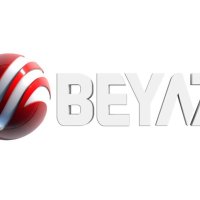Hunt’s Autumn Statement must resist the temptation of tax cuts

In a recent development in the Australian corporate world, investors in Fortescue have voted down the executive payout plan proposed by the company. This decision has sparked discussions and debates about corporate governance, shareholder rights, and executive compensation in the mining industry. The vote, which took place at the company’s annual general meeting, reflects the growing concerns among shareholders about the fairness and transparency of executive remuneration practices. The outcome of this vote has significant implications for Fortescue and its stakeholders, as it signals the need for a re-evaluation of the company’s approach to executive compensation and stakeholder engagement.
Fortescue, one of the largest mining companies in Australia, has been at the center of attention due to its controversial executive payout plan, which faced strong opposition from a significant portion of its investors. The proposal, which aimed to reward the company’s top executives with substantial financial incentives, was met with skepticism and disapproval from shareholders who questioned the alignment of the proposed payouts with the company’s performance and the interests of its stakeholders. The defeat of the executive payout plan reflects the growing assertiveness of shareholders in holding companies and their boards of directors accountable for their decisions and actions.
The voting down of the executive payout plan by Fortescue’s investors has raised pertinent questions about the company’s corporate governance practices and the effectiveness of its board of directors in addressing the concerns of its stakeholders. It has also brought to the fore the need for greater transparency and communication between the company and its investors, as well as the importance of engaging in meaningful dialogue with shareholders to understand their perspectives and expectations. This episode underscores the significance of stakeholder engagement in shaping corporate policies and strategies, and the role of investors in influencing the decision-making process within organizations.
The implications of the rejected executive payout plan are not limited to Fortescue alone; they extend to the broader landscape of corporate governance and executive compensation in the Australian mining industry. This event serves as a wake-up call for companies operating in the sector to reassess their approach to remuneration and to consider the viewpoints of their shareholders in designing executive pay packages. It also highlights the growing influence of investor activism in shaping the governance practices of companies and the increasing demand for accountability and transparency in decision-making processes.
As Fortescue grapples with the fallout of the rejected executive payout plan, it faces the imperative of regaining the trust and confidence of its investors through proactive measures aimed at addressing their concerns and aligning its remuneration practices with its performance and long-term objectives. The company’s board of directors is tasked with the responsibility of re-evaluating its executive compensation framework and engaging with shareholders to rebuild trust and demonstrate its commitment to fostering a culture of accountability and responsible corporate behavior.
In conclusion, the vote by investors in Fortescue to reject the executive payout plan signifies a pivotal moment in the company’s journey towards enhancing its corporate governance and engaging with its shareholders in a more meaningful and transparent manner. The repercussions of this decision resonate not only within Fortescue but also across the Australian mining industry, prompting a critical re-examination of executive compensation practices and the importance of stakeholder consultation in shaping corporate policies. This episode serves as a reminder of the evolving dynamics of shareholder activism and the growing emphasis on ethical and responsible business conduct in today’s corporate landscape.
Comment
Popular Posts
- 1
- 2
- 3
- 4
- 51 year ago
Latest Posts
- 1
- 212 minute ago
- 3
- 432 minute ago
- 5
Categories
- World 13194 Post
- Knitting 18 Post
- General 17 Post
- Travel 183 Post
- Technology 12248 Post
- Movies and Series 14090 Post















There are no comments yet.